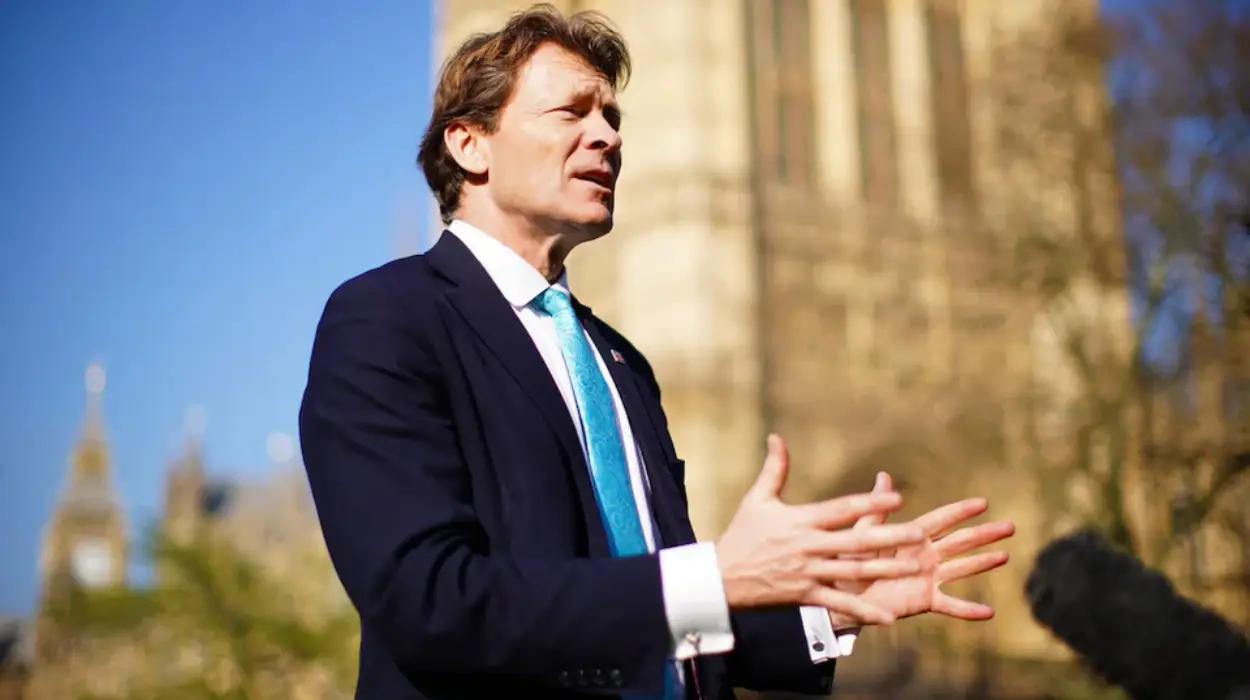UK (Parliament Politics Magazine) – Taxpayers may have to bail out MPs’ £862m pension fund after a 25% shortfall, with critics blaming ESG investments for its underperformance.
As reported by The Telegraph, taxpayers could be required to cover a £862 million shortfall in MPs’ pension fund after missing its investment target by 25%. Opponents raised concerns over the poor returns on ESG investments.
What caused the 25% shortfall in MPs’ pension fund?
The parliamentary pension scheme, backed by MPs and the Treasury, has failed to meet its expected returns for the past five years. The underperformance has sparked accusations of over-investment in “ethical funds” as the reason for the shortfall.
According to the latest accounts, the scheme missed its goal by 25% in the year ending March 2024, raising worries among MPs about its financial stability.
Richard Tice’s views about MPs’ pension fund and ESG investments
Reform UK deputy leader, Richard Tice, has written to the trustees of the MPs’ pension fund, alleging they have allowed political considerations to influence investment decisions, particularly by prioritising environmental, social, and governance (ESG) funds.
Mr Tice highlighted the fund’s holdings shift toward ESG investments, raising concerns about the fund’s ability to meet its established benchmarks.
The Reform MP stated,
“As a result, taxpayers will probably be forced to pick up the tab.”
Mr Tice compared the latest strategy document to the 2019 edition, stating,
“A huge swing in favour of environmental, social, and governance (ESG) investing.”
He said,
“The result is multiple renewable-style investments, presumably all part of the establishment’s obsession with net zero. Analysis of the fund’s returns indicates this is a significant cause of the above underperformance.”
Mr Tice added,
“Many global fund managers are abandoning ESG requirements due to underperformance. The trustees should be doing the same – but are doing the exact opposite.”
ESG funds aim to invest in projects that support ethical goals, such as reducing carbon emissions, reducing plastic pollution, and increasing female representation on company boards.
As the MPs’ fund struggles, taxpayers will have to increase their contributions to keep it operational.
What did the parliamentary pension report reveal about ESG investments?
The latest parliamentary pension fund accounts reveal that over 40% of its capital is invested in ESG funds, including a renewable infrastructure project managed by BlackRock.
In December, BlackRock was forced to reduce the value of the fund after two major investments, Northvolt and SolarZero, went bankrupt.
The latest report disclosed that BlackRock has carried out “ecological impact assessments” on its investments, including scheduling projects to shut down during certain times of the day to protect bats.
The latest review in 2023 indicated that the government contribution could be reduced from 10.5% to 12.9% of wages, though it may rise again if the fund’s performance does not improve.
The decline in the fund’s returns follows a 2021 decision to invest a significant portion of its capital into sustainability-focused projects.
The MPs’ pension fund’s asset manager, Schroders, admitted that it had sold an investment for “ESG reasons,” despite the stock yielding good returns.
How did the MPs’ pension fund commit to ESG investments in 2024?
According to the fund’s latest strategy document, released in January, the fund pledged to
“consider opportunities arising from a greater understanding of ESG factors, such as investment in renewable energy infrastructure, when setting their investment structure.”
The parliamentary fund’s asset managers are obligated to report their ESG activities to the trustees.
During a meeting, an asset manager managing property investments revealed that it had introduced
“tree-planting and landscaping activities” for tenants, along with “yoga classes and other wellbeing activities.”
ESG investing, once seen as the future of asset management, has seen some leaders retreat from ethical funds following pushback from the Trump administration in the US.
The US president’s public support for oil and gas drilling has caused markets to shift away from renewable energy, which is viewed as less profitable.
MPs annual salaries
The Office for National Statistics figures are used to link annual adjustments in MPs’ pay to changes in average earnings across the public sector.
Below are the annual salaries of MPs of the last five years:
| April 2021 | £81,932 |
| April 2022 | £84,144 |
| April 2023 | £86,584 |
| April 2024 | £91,346 |
| April 2025 | £93,904 |


